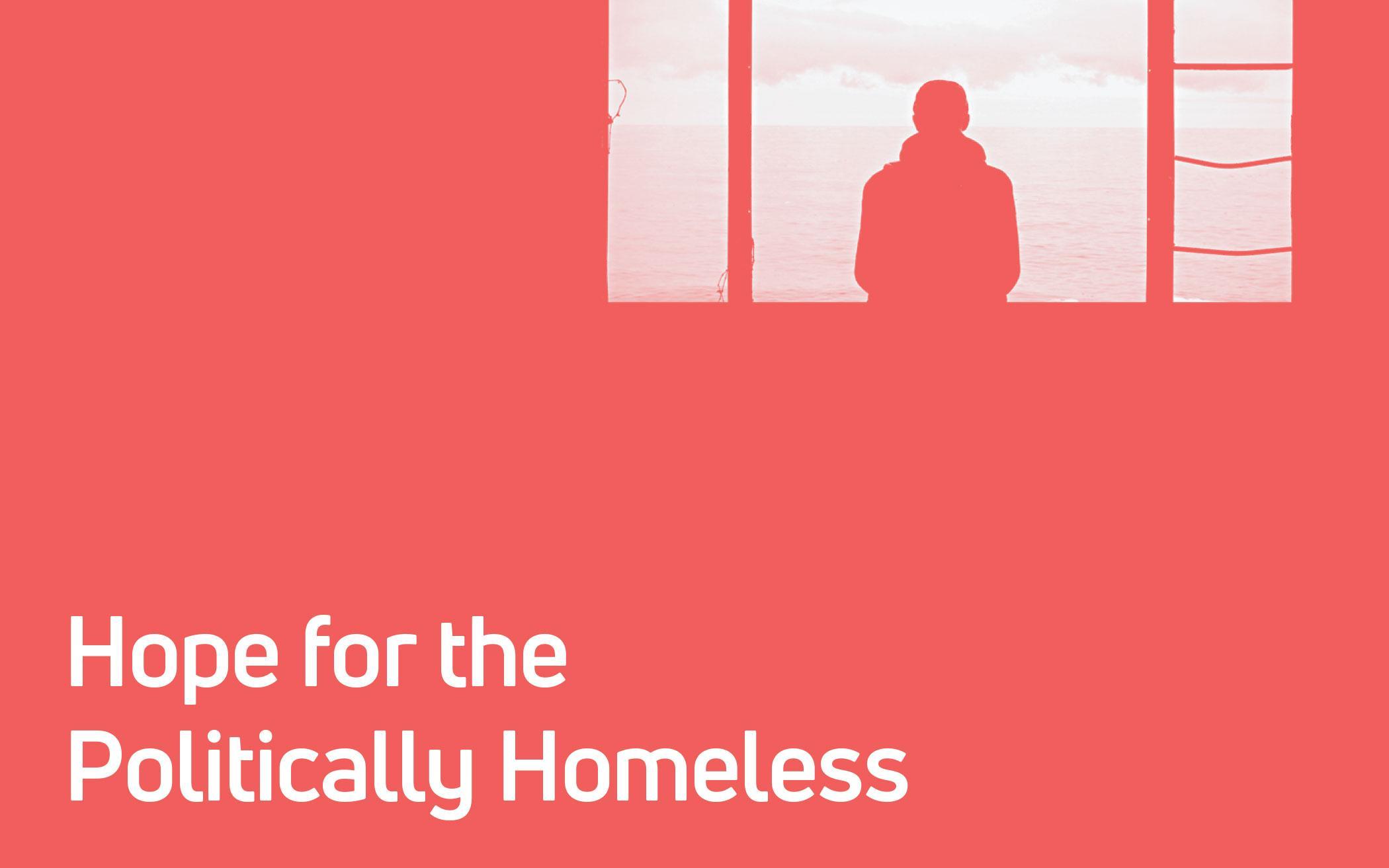One of our feature articles, “Hope for the Politically Homeless” (p. 32), is the last in a series of six articles produced in collaboration with the Center for Public Justice, an independent, nonpartisan Christian organization focused on policy research and civic education. We explored the theme of an emerging generation of Christians who feel politically homeless in the current divisive politics of the U.S. I recommend all six articles, written by authors including Richard Mouw, Vincent Bacote, and Jessica Joustra, found online at thebanner.org/tags/political-home.
As the article’s authors Chelsea Bombino and Katie Thompson noted, “Many Christians describe themselves as feeling politically homeless” because they feel “too conservative for progressives and too progressive for conservatives.” The authors ask, “How can Christians model and practice faithful engagement in public life without putting our ultimate faith in politics, political parties, or leaders?” They suggest that Christians draw biblical principles from the two great commandments of loving God and loving neighbor to guide them in discerning which public policies might be more just and better for the common good. That discernment should come no matter what country we’re in.
Of course, how well we understand what it means to love God and to love our neighbor correlates to how much we immerse ourselves in the biblical story, to be transformed inside-out, intellectually and emotionally, by its gospel message and its worldview. A shallow or fragmented acquaintance with Scripture would yield similarly shallow and piecemeal principles that will not guide us well in civic engagement.
In fact, if we only know bits and pieces of the biblical story, those bits and pieces can easily be co-opted into secular political ideologies and stories. We can confuse or even delude ourselves into thinking that we have a Christian political vision due to these biblical theological bits and pieces when they are actually attached to a larger worldview alien to the Bible. This is a danger for people of all political stripes, from conservatives to progressives, from anarchists to conspiracy theorists.
When our political climate is so polarized, it is in one sense good for Christians to be politically homeless. Christians who do not feel at home with any of the political factions are less in danger of political idolatry, tribalism, and partisanship. We should never be at home in any political party because our loyalties are to King Jesus and his kingdom way.
A more positive way is to say we should be “politically eccentric.” In his blog post “Christianity’s Eccentricity,” Peter Schuurman writes, “Eccentric literally means off-centre, and more conventionally, it means being non-conformist, not following the status quo, and at times, being perceived as odd in the eyes of the world.” We serve an eccentric messiah, who gave up his heavenly throne and became a servant (Phil. 2:6-7) to reconcile with his sinful enemies by dying for them (Rom. 5:6-11). Unlike many other religions, Christianity has no central language, culture, or nation. Shouldn’t our political vision, then, be eccentric as well, at odds with the polarized status quo? Our political imaginations should not be enslaved by the world’s political patterns. Christians should be out-of-the-political-box thinkers.
We are politically homeless because our ultimate home is with the Lord. We are politically eccentric because we serve an eccentric messiah whose kingdom does not conform to our world’s systems (Rom. 12:2).
About the Author
Shiao Chong is editor-in-chief of The Banner. He attends Fellowship Christian Reformed Church in Toronto, Ont.
Shiao Chong es el redactor jefe de The Banner. El asiste a Iglesia Comunidad Cristiana Reformada en Toronto, Ont.
시아오 총은 더 배너 (The Banner)의 편집장이다. 온타리오 주 토론토의 펠로우쉽 CRC에 출석한다.
You can follow him @shiaochong (Twitter) and @3dchristianity (Facebook).







